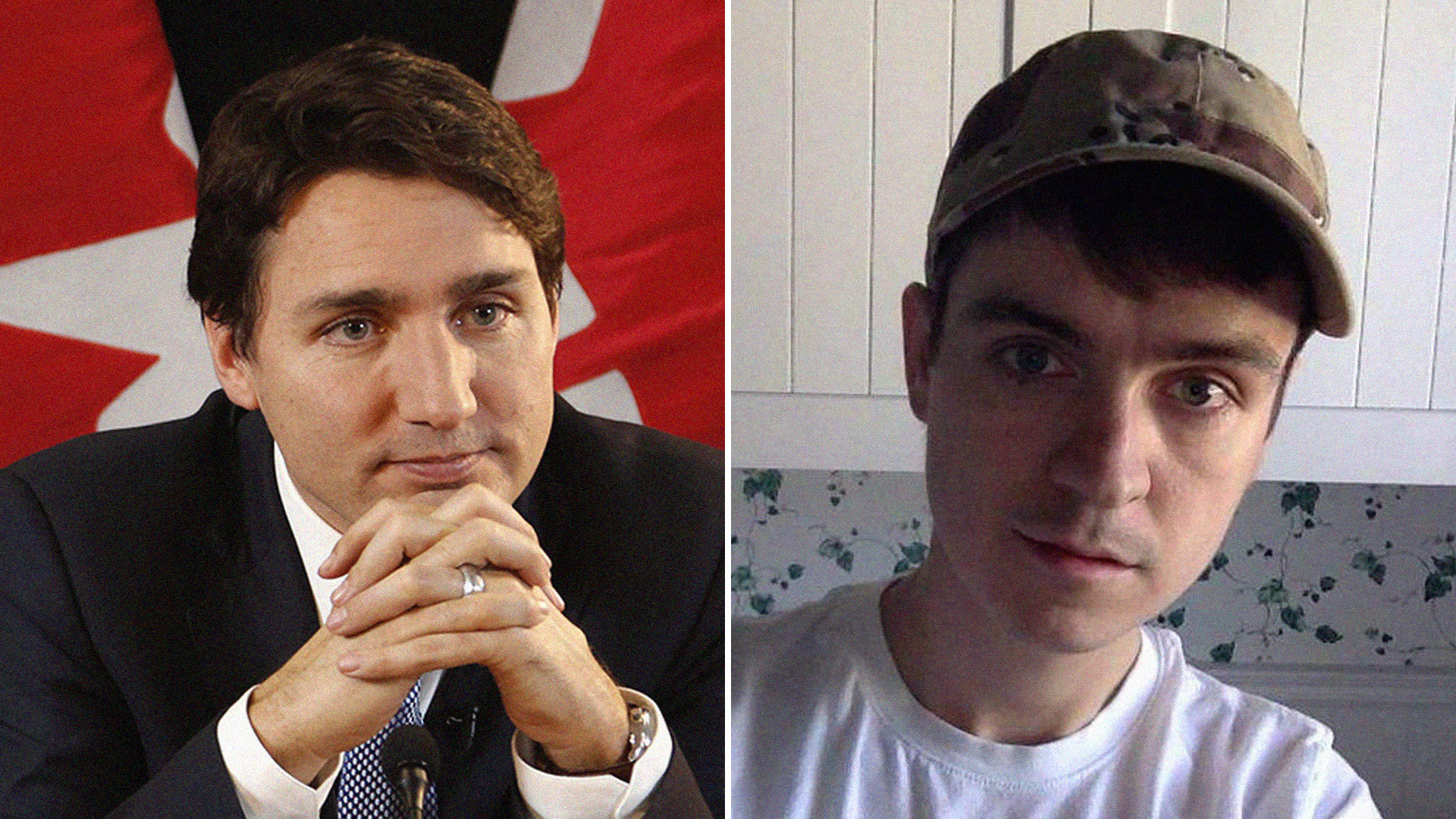Quebec City Mosque Shooter’s Dad Asks Trudeau to Stop Calling His Son a Terrorist

Credit to Author: Stéphanie Fillion | Date: Tue, 30 Apr 2019 21:39:57 +0000
In January 2018, Alexandre Bissonnette entered a Quebec City mosque and opened fire, killing six Muslim men and injuring more than a dozen other people. A year later, he was found guilty of six first-degree murder charges. He was never charged with any terrorism offences—potentially because they are more difficult to prove and would not have added to his sentence. Yet, the Canadian government keeps calling him a terrorist, and Bissonnette’s father is asking them to stop.
On Friday, Raymond Bissonnette sent a letter to Prime Minister Justin Trudeau to ask him to stop calling his son “a terrorist” because of the harm it causes to his family.
“I consider that the repeated statements labeling Alexandre Bissonnette as a terrorist have already caused serious harm to my family. For this reason, I respectfully ask you to abide by the Crown’s findings, re-establish the facts and abstain from qualifying Alexandre Bissonnette as a terrorist,” Raymond Bissonnette wrote in a letter sent on Friday to Trudeau, published in La Presse.
Bissonnette argued in his letter that calling his son’s actions terrorism “increased the danger” for his family and suggested there could be reprisals for the attack, citing the recent terror attack in Sri Lanka.
“Is it unrealistic to think that this danger is also real for every Canadian, here and abroad, who could become the target of extremists wanting to avenge a so-called ‘terrorist attack’ in a Canadian mosque? The appalling terrorist attack in Sri Lanka on April 21, 2019 to ‘avenge’ the Christchurch attack is a frightening example that, I hope, will make you aware of the dangers of labeling a crime a ‘terrorist attack,’” Bissonnette wrote.
But by finger-pointing at the prime minister for his son’s act, Bissonnette did more harm than good, an expert says.
“It was very clumsy from Mr. Bissonnette to send this letter,” Stéphane Leman-Langlois, the co-director of the Observatory on Terrorism and Violent Extremism at Laval University, told VICE. “His letter had the opposite effect of what he expected: he wanted to disassociate the word terrorist from his son, and as a result of his letter, he is even more [associated with terrorism].”
Experts say that even though Bissonnette was not convicted of terrorism charges, it does not automatically means his acts were not terrorism.
“It is clear that Bissonnette’s crime was a terrorist act,” Leman-Langlois said.
Despite the lack of terror charges, the Canadian government has labelled the events in Quebec City as terrorist attacks occasionally. Raymond Bissonnette cited in his letter that Canada’s Foreign Minister Chrystia Freeland said at a United Nations debate in March that “two years ago, a terrorist killed six people in a Quebec City mosque.”
Reasons charges weren’t laid
One possible reason why terrorism charges were not laid by prosecutors, one criminologist wrote in Le Devoir, is that murder charges are already the most serious ones you can face, and terror charges would not have added to Bissonnette’s sentence.
In 2017, Crown prosecutor Thomas Jacques said the lack of terror charges reflected what the Crown had to work with.
“All the evidence gathered by the various police forces involved in this large scale investigation has been rigorously analyzed and the charges laid are the result and the evidence gathered, the available evidence and the current laws in Canada,” Jacques told The Canadian Press.
A spokesperson from the office of Federal Public Safety Minister Ralph Goodale echoed the same argument, in a statement sent to VICE: “For prosecutors, proving that someone murdered many people may sometimes be more achievable than proving they murdered them for political, religious or ideological objectives.”
Goodale also said he doesn’t think a semantic argument will satisfy Canadians:
“He must bear the consequences of his conduct,” Goodale told reporters Friday, adding that “his intent was to instill fear and terror in the hearts of Canadians.” A spokesperson from the Prime Minister’s Office told VICE the PMO had nothing more to add.
Just like in Christchurch, no matter how we call it, actions speak louder than words, Leman-Langlois says.
“We’re talking about label here, but people are inspired by facts, both people who want to repeat or avenge,” Leman-Langlois told VICE, “whether you label it as terrorism or not, it doesn’t change the nature of the action.”
After reading his sentence for hours on February 8, and just before telling him how many years he was going to spend in prison without parole—the majority of his life, basically—Quebec Superior Court Justice François Huot told Bissonnette:
“Alexandre Bissonnette, your name will not be forgotten, but for the wrong reasons,” Huot told him, looking straight in his eyes. “Unlike your heroes Elliott Rodger, Dylan Roof and Kip Kinkel, you will now have to face the consequences of your actions. Your sentence will be like a long, very long, journey crossing the desert.” Just like Bissonnette, Brendon Tarrant, New Zealand’s gunman now faces the consequences of his actions, with 50 counts of murder. Just like Bissonnette, he is still being called a terrorist.
Sign up for the VICE Canada Newsletter to get the best of VICE Canada delivered to your inbox.
Follow Stephanie on Twitter.